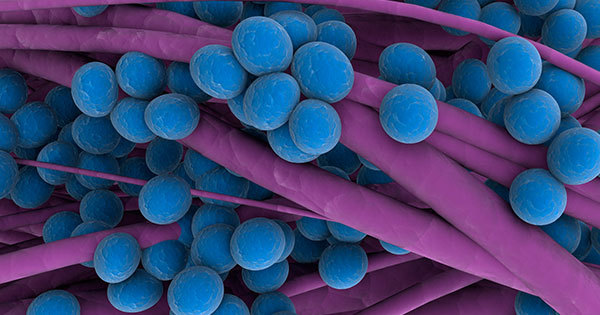The “superbug” MRSA has been found in British pork, reports suggest.
However, experts stressed the finding does not pose a significant risk to the public and said sensible food hygiene should minimise any risk.
A test, commissioned by the Alliance to Save Our Antibiotics, Compassion in World Farming and Sustain, examined 97 UK-produced pork products from supermarkets.
Two samples of minced pork from Asda and one from Sainsbury’s were found to have the livestock strain of MRSA, the Guardian reported.
Emma Rose, from the Alliance to Save Our Antibiotics, told the newspaper: “It is extremely worrying to find LA (livestock-associated)-MRSA in British-produced pork.
“LA-MRSA is able to cause serious and potentially fatal infections in humans, and as the bacteria is resistant to antibiotics, it is extremely difficult to treat. What’s more, even more dangerous variations are emerging as the superbug evolves.”
But Nicola Williams, professor of bacterial zoonotic disease at the University of Liverpool, said: “Current data does not suggest that livestock-associated MRSA is common among UK pig herds. Even if herds are infected with significant levels of the bacteria, the extent of contamination of meat with MRSA will be much lower than compared to food-poisoning bacteria such as salmonella, so the risk of transmission to people will be lower.
“Adopting good hygiene practices in the kitchen, washing your hands when handling raw meat and cooking meat properly should minimise any risk.”
Commenting on the finding, a spokeswoman for the Department for Environment, Food and Rural Affairs, said: “Livestock-associated MRSA is not the same as MRSA strains that can cause healthcare-associated infections and if meat is handled and prepared properly, the risk to people is low.
“Defra and the National Pig Association recommend that pigs imported to Britain are screened for LA-MRSA. The Government is currently reviewing options for surveillance, which will be proportionate to the very low health risk posed by livestock-associated MRSA.”
A spokeswoman for Sainsbury’s said: “We only allow the use of medicines on farm for animal health and welfare purposes, and under the strict supervision of a vet. We work closely with our farmers to ensure antibiotics are used responsibly.
“MRSA CC398 is uncommon in British pork and, through basic kitchen hygiene and thoroughly cooking meat, any food safety issue is removed.”
An Asda spokeswoman added: “Our customers can be assured that we are working closely with industry groups and farmers to make sure that antibiotics are used responsibly in farm animals.
“We are doing all we can to promote good animal health and welfare conditions without relying on antibiotics.”


